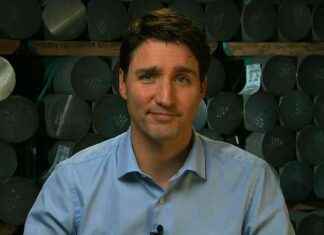The foreign ministers of the European Union agreed on Monday in Luxembourg to establish a mission to train some 15,000 Ukrainian soldiers from November and provide additional funds worth 500 million euros for the delivery of weapons to Kyiv.
“Today we are stepping up our support for Ukraine to defend itself against illegal Russian aggression,” EU High Representative for Foreign Affairs Josep Borrell said in a statement. The mission, initially scheduled to last two years, “will train the Ukrainian armed forces so that they can continue their valiant fight,” the statement added.
EU foreign ministers also agreed to provide a further €500 million in funding for arms supplies to Kyiv, bringing the total amount earmarked for arms delivered to Ukraine to more than €3 billion.
On the other hand, the European Union countries discussed sanctions on Iran after Russia’s alleged use of Iranian drones in its war in Ukraine, as the bloc sanctioned the Iranian “morality police” and other entities for violations. of human rights related to the death of a young woman in police custody.
Along these lines, the Ukrainian Foreign Minister, Dmitro Kuleba, asked the EU foreign ministers by videoconference on Monday, from a bomb shelter in Kyiv, for new sanctions on Iran for providing these drones to Russia.
Before the meeting, Josep Borrell said the ministers would discuss reports of Iran’s military support for Russia, including accusations that Moscow is using Iranian drones to launch kamikaze attacks on targets in Kyiv and other Ukrainian cities.
“Iran, with its drones and missiles, is becoming an accomplice in the war, similar to how Belarus did it,” Lithuanian Foreign Minister Gabrielius Landsbergis told reporters. “There needs to be clear attribution of ownership of the missiles by the allies that are helping Ukraine and I am going to ask for that to happen.”
Asked about reports that Iran is sending missiles, as well as drones, to Russia and whether these warrant additional sanctions, Borrell said “this is something that will be discussed,” adding that “we will be looking for concrete evidence of U.S. involvement.” Iran in the strongest possible terms they deny.”
The discussions over sanctions on Iran come at a time when negotiations over a possible deal with the country to end its nuclear program are stalled, which could complicate any hope of reviving the talks. EU diplomats have stressed that the two issues are separate.
The EU on Monday issued new sanctions against 11 Iranians and four entities, including the country’s “morality police” and its cyber defense command, as well as communications minister Eisa Zarepour. The restrictions include a travel and asset freeze.
“It is clear that we cannot not react, that we cannot sit idly by and continue to watch,” Austrian Foreign Minister Alexander Schallenberg said. Protests erupted in Iran on September 16 over the death of Mahsa Amini, who had been arrested for allegedly breaking strict Islamic dress codes.








